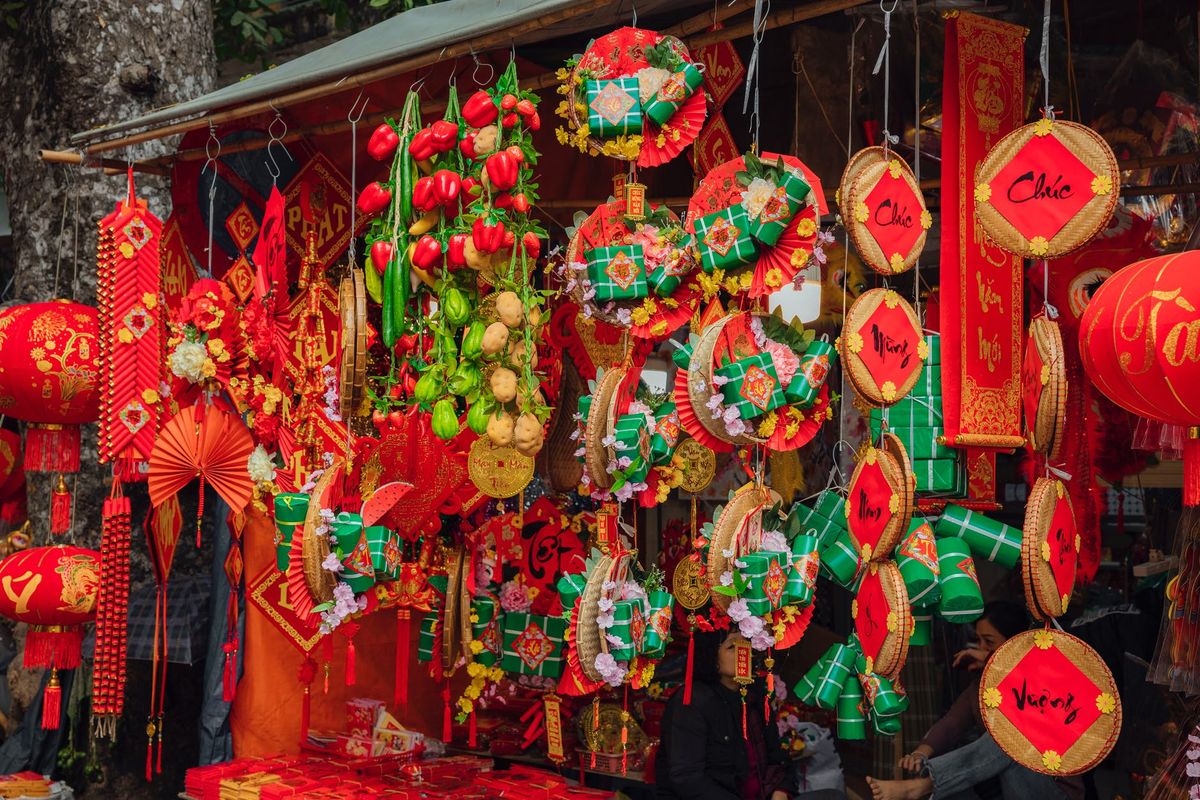Chinese New Year traditions and superstitions to watch for in Hong Kong this year

A few minutes every morning is all you need.
Stay up to date on the world's Headlines and Human Stories. It's fun, it's factual, it's fluff-free.
Along with the many diverse ways of celebrating Chinese New Year 2022 in Hong Kong, many traditions are observed during the holiday. Simple yet meaningful, these Chinese New Year traditions add fun, meaning as well as a touch of history to your celebrations.
As much as the festivities are focused on bringing in good luck and prosperity in the new year, these traditions open up “pathways” for luck to come to you swiftly and in abundance. So whether you want to accumulate some good luck, prevent bad luck or even have some personal wishes come true, you can get in on the fun this year with these Chinese New Year traditions.
Red pockets
Many Chinese New Year traditions require some prep ahead of time, and these are generally meant to reap good luck and grant wishes. One of the most significant is sharing what is known in Cantonese as “lai-see” packets.
Lai-see packets (also known as “Hong Bao” in Mandarin) are red envelopes or pockets, often marked with the character 福 (fuk), which means “luck.” These pockets are filled with money and symbolize prosperity and luck. Giving and receiving these is a way of giving and showing appreciation and nurturing relationships between family and friends.
The significance is placed on the exchange itself rather than the monetary amount within the envelope. However, many people follow a certain etiquette – for example, don’t include coins and try only to give new bills. Regarding the amount you give, avoid the number four because it is too similar to the word meaning “death.”
Moreover, some lucky numbers to keep in mind when swapping envelopes are 88 (it rhymes with the word for “good luck”) and 99 (for longevity).
Decorating your home ahead of time also opens a gate for luck. As your home is essentially a place that embodies you, Chinese New Year decorations are significant for letting luck enter. Not only does a clean house allow luck to flow in smoothly, but with decorations, the house will enable you to rest and celebrate comfortably during Chinese New Year.
Taking care of personal grooming beforehand is also a common tradition. For example, if you plan to cut or wash your hair, it’s best to do it before the holiday, as cutting or washing your hair during Chinese New Year symbolizes cutting or washing away the luck you’ve accumulated. But, with COVID-19 in Hong Kong, we still recommend that you wash up normally during Chinese New Year as well!
Superstitions
There are many superstitious “rules” that people abide by during the Chinese New Year. To start, you’ll see a lot of the same color – red. Red is considered a lucky color that brings good fortune. This belief originates from a Chinese myth where Nian, a monster, was driven away by red weapons, along with bright lights and firecrackers. Thus, whether it be decorations or clothes, it is encouraged to incorporate red as much as possible.
On the day of Chinese New Year, it’s said you shouldn’t enter others’ bedrooms. People are usually left to wake up by themselves. Waking someone up on Chinese New Year is believed to leave the person exhausted throughout the new year.
Broken, old and sharp objects are also to be thrown away or kept out of sight during Chinese New Year. These items are believed to represent bad luck, similar to the idea that cutting your hair is like snipping the good luck away from you. Your surroundings and the objects you use should be clean and new to start the new year right.
In Cantonese, “shoes” is pronounced similarly to the word “rough.” Of course, you do not want a rough start to the year for obvious reasons. So, it’s a common belief that you should consider buying shoes before or after Chinese New Year.
Lucky foods
The easiest to find and eat, mandarins and citrus fruits tend to be associated with prosperity and luck due to their vibrancy. Also, with ties to the tradition of making wishes on wishing trees, these bright citrus fruits should be a go-to for eating during Chinese New Year.
In terms of “lucky” dishes, you can try Changshou Mian – longevity noodles that literally translate to “long-life noodles.” As the tradition goes, the longer the noodles you cook and eat, the luckier you’ll be, especially regarding your health and life-span. So, when cooking or eating this dish, be mindful of the noodles – cutting them short (even by accident) can be considered bad luck.
Dishes containing fish are said to bring luck, as they symbolize abundance and family unity. This belief comes from the fact that the Chinese word for “fish" (鱼 Yú) sounds like the word for “surplus.”
Chinese dumplings are also a popular dish throughout the holiday, as the number of dumplings you eat is symbolic of how much wealth you will earn in the new year. Although the most common fillings are pork, shrimp, beef or vegetables, different dumpling fillings can be interpreted to have different meanings.
People tend to eat dumplings containing cabbage and radish because the ingredients are related to improved skin and mood. Spring rolls are also a popular dish filled with meat and vegetables and wrapped in thin dough. Once fried golden, spring rolls represent wealth and good fortune due to their resemblance to gold bars.
To get into the spirit of the season, try incorporating these fun traditions for an amazing Chinese New Year 2022 in Hong Kong. Gong hei fat choy! – Wishing you great happiness and prosperity!
Have a tip or story? Get in touch with our reporters at tips@themilsource.com




Comments ()